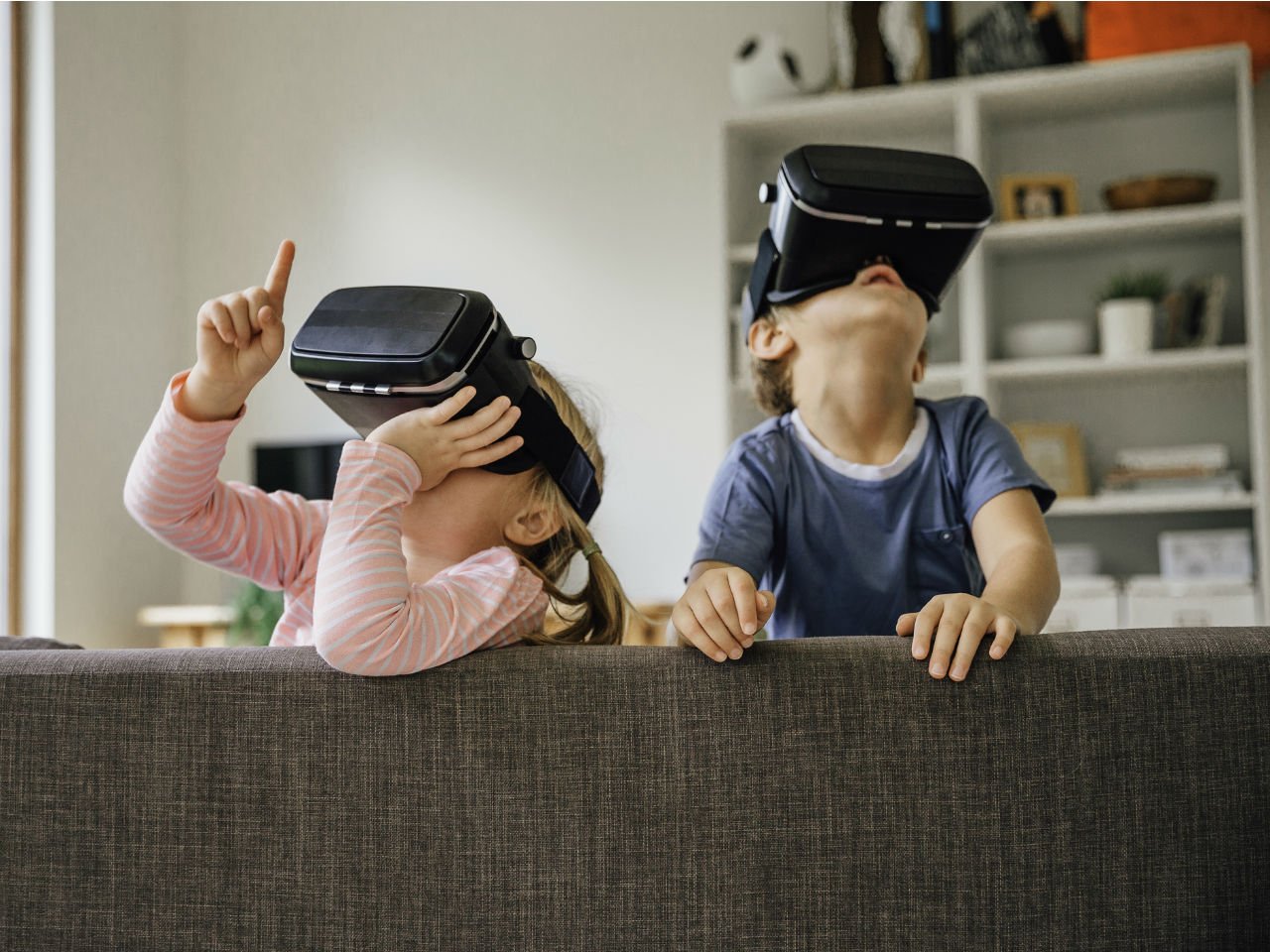Filip Hráček / text /
We need technology that is less immersive, not more
I love this quote from Ray Bradbury about Edgar Rice Borroughs, the author of Tarzan and John Carter stories:
“Edgar Rice Burroughs never would have looked upon himself as a social mover and shaker with social obligations. But as it turns out – and I love to say it because it upsets everyone terribly – Burroughs is probably the most influential writer in the entire history of the world. By giving romance and adventure to a whole generation of boys, Burroughs caused them to go out and decide to become special.”
The boys who read Borroughs’ A Princess of Mars would grow up to be NASA engineers. Or, at the very least, they’d grow up to be in support of real-world exploration and science. It’s not that Borroughs’ books were particularly scientific. Far from it. But they were exciting and inspiring.

I don’t think that the past few generations have anything that quite reaches the influence of these stories. I grew up in the 1990’s, and while I romanticized space flight and advanced science as much as anyone else, my eyes went the widest from video games. Watching Star Trek, or a documentary about an oceanographer was cool, but you know what was cooler? Running around in a virtual environment where I could be a bad ass gun slinger or space marine or whatever, and have my own adventures, on my own terms.
Being able to immerse myself into a world that exists to entertain me was — surprise surprise! — preferable to doing almost anything else.
I don’t think we talk about this aspect of our era enough. And I believe lots of us have an emotional desire to minimize the negative impact of immersive videogames because it’s our childhood. But in this article, I’d like to posit that having such a different driving force nudges the progress of the whole human race in a direction that we wouldn’t have necessarily chosen if we were to make a rational choice.
Allocating talent to the wrong problems
Here’s another quote:
Many of the most talented artists of our time don’t do any art — they work in advertising.
(Unfortunately, I can’t find who said it, which means I’m probably remembering the wording wrong. Consider it a paraphrase.)
Now, I’m not going to delve too deep into the particular topic of art and advertising. I do think there’s truth to it, and that maybe some of these people who are currently gainfully employed making ad jingles could be doing something ultimately more important for society — but I mention this quote here for another reason. It’s an example of outside forces nudging people to work on something that is not really that important in the grand scheme of things.
Here’s my variant of the quote:
Many of the most talented engineers of our time don’t do anything important — instead, they work on making our entertainment more immersive.
They work on better 3D renderers, more appealing shaders, faster VR hardware, better spatial sound, more powerful game engines, more immersive games, more colorful phone screens, more eye-catching app animations, etc.
Here’s why:
- They grew up playing immersive 3D video games, and romanticizing that whole industry.
- It pays.
I don’t care how much you’re invested in the VR ecosystem or whatever — I hope you’ll agree that humanity has a variety of important engineering problems to solve, and nicer-looking graphics is quite low on that list. I know there are real-world use cases for better, more immersive rendering or bigger phone screens — but their utility pales in comparison to actual real-world research of actual real-world phenomena, does it not?

The gaming industry has hijacked human play. Instead of an evolutionary learning and relaxation tool, it’s so immersive now that people get sucked into spending hundreds of hours playing games that don’t teach them anything valuable about the real world, and don’t relax them at all. I’m a gamer, and I of course enjoy immersing myself in a good AAA video game, but I had to admit to myself at one point that, long-term, playing video games for any extended period makes me physically miserable and dumber.
Going less immersive
I realize this probably reads as a rant. Please don’t take this as an attack. Instead, I would like for this article to be inspiring. There are so many amazing engineering problems out there. Many of them are more important than what you’re probably working on right now, and yet there are fewer people focusing on them, so there’s less competition, and more opportunity to actually “change the world.”
Focusing on such problems probably pays less, but if you’re reading this, chances are you’re not a starving artist. You’re in the tech industry. Even taking a major hit to your salary will still land you way above average. You’ll live. Take it from a guy who left a nice engineering position at Google in Silicon Valley to work as a solo developer in the Czech Republic.
Maybe you’re like me, and you've already invested much of your career into graphics and UI programming. Maybe you (like me!) just can’t let go of your childhood dream to make videogame-like experiences. Well, there are still options. You can make apps and videogames that don’t immerse. My first (and quite successful!) “videogame” looks like the Kindle app. My second one looks like a CAD program. There are new opportunities in things like e-Ink or transparent screens or IoT that can help people re-focus on the real world around them yet still reap the benefits of technology.
My point is that you have a choice. You can still, of course, choose to push on making our technology as immersive as possible. If you develop your career on autopilot, you will probably end up doing that. But you don’t have to, and maybe you shouldn’t.
— Filip Hráček
January 2024
